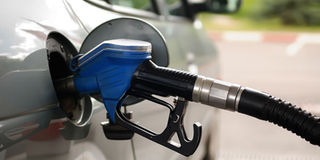Beware of scraping your car on humps

What you need to know:
Fuel consumption. The way you drive, the weight in your car and the way you open your windows when driving have an effect on the fuel.
All countries have access to the same petroleum prices of international markets but because of the different taxes imposed in those countries, the retail price of petroleum products ends up varying.
Ugandan based petroleum dealers purchase the product from Nakuru, Eldoret or Kisumu, therefore with transport costs, exchange rates and the taxes, the pump price in Uganda can’t easily reduce.
However, according to Hans Paulsen, the Vivo Energy Managing Director, one can improve their fuel economy gains in various ways.
Don’t carry a lot of weight
“Avoid carrying extra weight or unnecessary luggage, this reduces the load on your engine and improves its fuel economy. Just like your body, your car needs more fuel to move around more weight. In summary, the heavier the item, the more fuel you need for your engine,” Mr Paulsen says, adding that one should also drive smoothly because aggressive driving uses more fuel. The perfect way to travel is at a constant speed.
“So if you are a patient driver, you will have lower fuel bills,” he says.
Paul Kirui, a vehicle inspector with Car Avenue advises motorists to use higher gears (five and six) and avoid over racing.
The gear matters
“Higher gears lower your engine revolutions or engine speed which improves fuel economy. A higher gear is more efficient on flat ground because you need almost no load on the engine.”
Kirui adds that on a hill where you demand increased power, it may be more efficient to shift toward your torque peak, especially if you are putting more than 50 per cent load on the engine. Basically, if you are flooring or near-flooring it and losing speed, shift down.
Keep distance when driving
Paulsen adds that drivers must conserve momentum and keep distance to allow early slowing down without abruptly braking to a halt. When the brakes are used, the car is slowed by converting the motion into heat. What is happening is fuel is converted into heat.
More heat generated by the brakes means more fuel was wasted to create that heat. Hard braking means more heat and more heat means more wasted fuel.
Avoid over speeding
Avoid high speed driving because the faster you go, the more fuel you consume. At very high speeds engines will rev higher, the engine will have to work much harder and it will start to consume far more petrol.
Don’t over use the AC
Use air conditioning sparingly as it is a load on your engine. It uses quite a bit of fuel, so we advise you turn it off when it’s not hot.
Use cruise control on the highway because it helps to maintain a constant speed which improves fuel economy.
Avoid idling
Avoid unnecessary idling of the engine in traffic jams. An idling engine wastes fuel when it is not going anywhere.
How you open the windows
Fully open or lowered windows can increase your fuel consumption when you are driving fast. Anything that makes wind noise as your car goes along is actually making your car more expensive to run.
Use a route planner to choose the shortest way to your destination.




